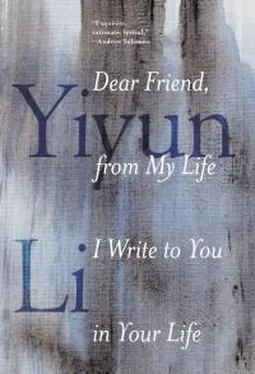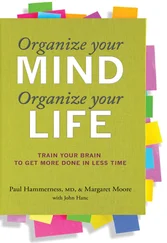Sometimes people ask me what they should read if they want to start reading William Trevor. To say anything about Trevor’s work is also to speak about memories—they are in English, and I know where they start. There is “The Piano Tuner’s Wives”: the pain of seeing the characters struggle with cruelty they do not know they are capable of is not alleviated by familiarity. There is “Reading Turgenev”: once in Pennsylvania I was driven by a poet in the moonlit countryside, and she told me that she had been working on a poem called “Reading Turgenev” as a homage. There is Nights at the Alexandra, which traveled often with me. Once on a trip to New York, I watched a middle-aged woman and a child on the subway, the girl no more than thirteen, her head on the older woman’s shoulder, the latter caressing the child’s inner thigh. I could not tell if they were mother and daughter or a pair of lovers. Not knowing disturbed me as much as either possibility. Later in the hotel I started the first paragraphs of a novella. The narrator, a middle-aged woman living by herself in Beijing, tells her story with the same opening lines used by the narrator in Trevor’s novella, an older bachelor in a provincial Irish town. A person living in isolation does not speak from solitude, but loneliness; that Trevor’s narrator decided to speak to the world makes it possible for the woman to do so.
Trevor’s books— Other People’s Worlds, Fools of Fortune, Elizabeth Alone, The Story of Lucy Gault, and many more—offer me a haven. But even to explain that is to intrude: there is the privacy of Trevor, who has built that space; there is my privacy, too—in writing and in life one is often sustained by memories unshared.
—
AFTER TREVOR GAVE his last public reading—I had flown to England for it—he told Jane and me about an old man at the end of the book-signing queue. The man had come not for Trevor’s signature, but to thank him. His wife had loved Trevor’s stories, and when she had become too sick, he read to her. It was a Trevor story he had been reading to her as she died.
In time I would learn what it meant to understand one’s own writing through the eyes of a dying reader. A woman from Canada wrote to me, noting the chapter and page number where she had read a sentence that she said she would never want to lose. Her brain had been damaged from radiation, she wrote; she had not been able to concentrate because she fell asleep so often. She felt isolated but did not wish to seek out others. “This is something I have long considered and now I think I have my answer,” she said of the sentence. “Perhaps I will never sleep again.”
I remembered writing the sentence. Defending my mind at that moment, which was considering death as the way out, I had trespassed the boundary and written about myself: Love measured by effort was the only love within his capacity. Failure too, measured by effort, would be the failure he would have to make peace with one day.
—
THE OTHER DAY I read through the letters from Trevor. I wish there were a way to write them into this book. But I also wish there were a way to leave him unnamed as two other friends are among these pages.
—
HOW OLD IS your baby? a young woman asked me when, years ago, I checked into my side of the hospital room we were to share. Three days, I said; he was running a fever when we got home so he was readmitted. How old is your baby? I asked. He turned a month yesterday, she said; we’re waiting for him to reach five pounds. She was a high school student, and when she was not called away to nurse her baby she studied in bed. After school, a boy her age came to visit, and they huddled in her narrow bed, whispering and giggling. Two days later, the Twin Towers fell, and I spent the day between watching the news and visiting the quarantined baby. In the evening, when I returned to the room, they had changed the channel to the Cartoon Network, watching Tom and Jerry with the volume turned low.
The first time I went to Devon a young woman next to me on the train described the boardinghouse she would inherit one day from her grandparents. Her boyfriend was hoping to be hired by the old couple. I imagined them whispering and giggling behind her grandparents’ backs, like the new parents from years ago. One’s hope for strangers comes more naturally. Perhaps the child in Iowa, a teenager now, still has parents in love with each other. Perhaps the young woman and her boyfriend have settled down in the boardinghouse.
A few years ago, on a flight to London, a woman next to me asked to see the book I was reading and what I was writing in it. I showed her what I had underlined in an Elizabeth Bowen story, when one character asked another: “Has there been anything you have never told me?” Frightening, I had written in the margin, and the woman insisted that I write down it’s not so frightening for Alex, which was her name.
A cabdriver on my latest visit to Devon asked me which was my local prison, Sing Sing or Alcatraz. Alcatraz, I said, and he expressed regret, as I would not have heard of his relative imprisoned in Sing Sing in the 1930s, who had a record of hosting house parties from which people kept disappearing.
It’s my Irish guilt that drove me to the West Coast, a cabdriver in California said to me; have you heard of James Michael Curley, my granduncle, the only mayor of Boston who was elected from prison? Take my card, the driver prompted me, and before I exited the car he reminded me to look up his family story, which I dutifully did.
One morning in Washington, D.C., I stood for half an hour with another woman, waiting for the airport counter to open at five o’clock. She was a single mother, and she and her three daughters were on the way to Disneyland. They had packed all their party clothes and gone over a list to unplug everything in the house. They had saved for years to make this trip, the woman said. It’s wonderful chatting with you, she said when the counter opened; we should exchange emails.
People like to be asked about their lives. Sometimes they only need someone to listen. There is not a safer way to be out in the world, until listening pulls one into an unsolicited story. “I do not know how much time I have. I am wondering if you are willing to meet and to see if you are interested in my story,” a woman with cancer wrote to me. I had thought it was impossible to deny a dying person’s wish until the woman wrote again, predicting I would cancel the appointment because she was “inspired by serial killer Dr. Hannibal Lecter character to become a psychiatrist. Had suicidal and homicidal ideation. Struggled with being kind and evil constantly. Pursued happiness all these years and never found it. Quite often I wish I had a button to push to kill the entire human race.”
You must protect yourself, a friend warned me. But to write one has to give up protection fundamentally.
—
I HAVE NOT forgotten a person who has come into my life, and perhaps it is for that reason I have no choice but to live as a recluse. The people I carry with me have lived out not only their own rations but mine too. To remember is the due a recluse owes the world.
My father and I used to plant string beans in our yard, their tendrils reaching higher each day on the bamboo fence. When summer ended an old woman in the neighborhood would snap the beans a few days before we were ready to harvest. The first time I caught her stealing I was furious, but my parents said that I shouldn’t be because she had sewn a cotton jacket for me when I was a baby. Year after year the old woman harvested our beans, and every time my parents reminded me to be grateful for the jacket. Then she stopped coming: she had died, and I had no more reason to feel anything.
Читать дальше












